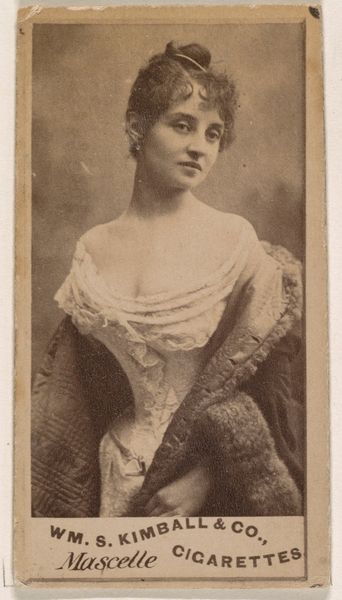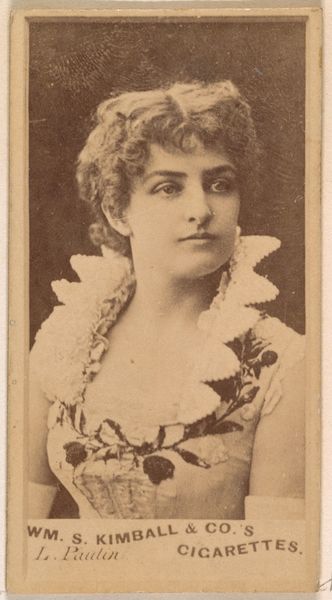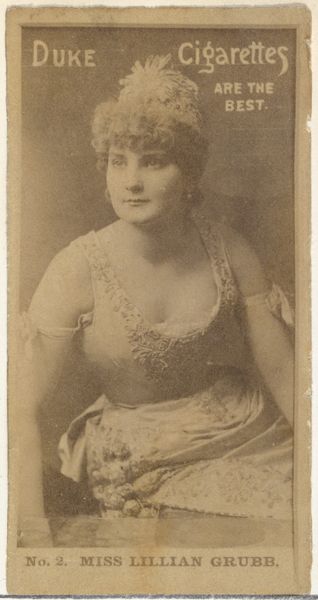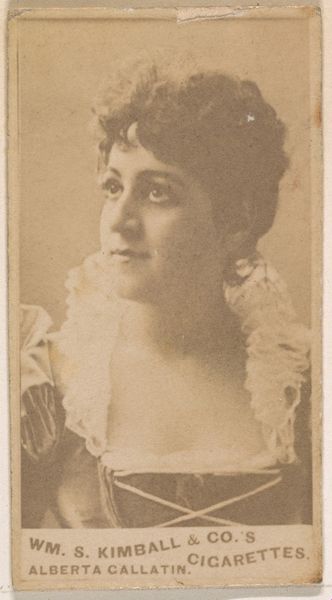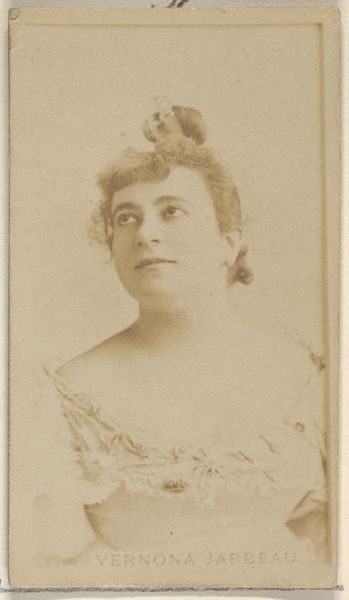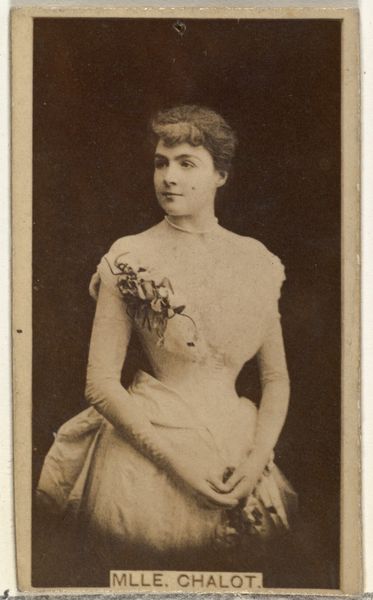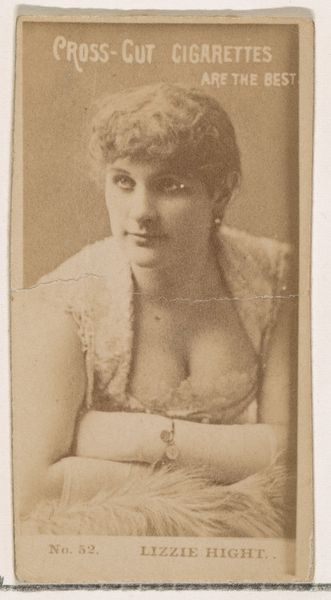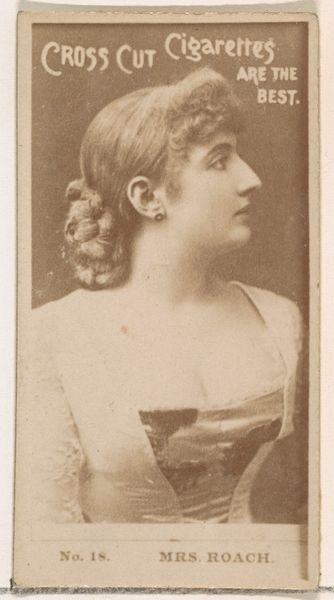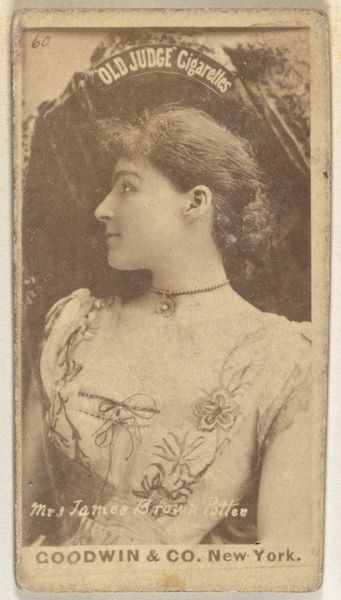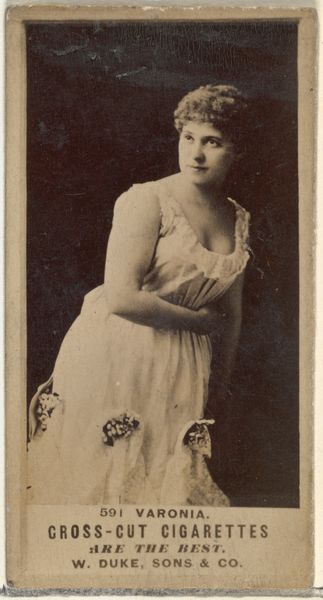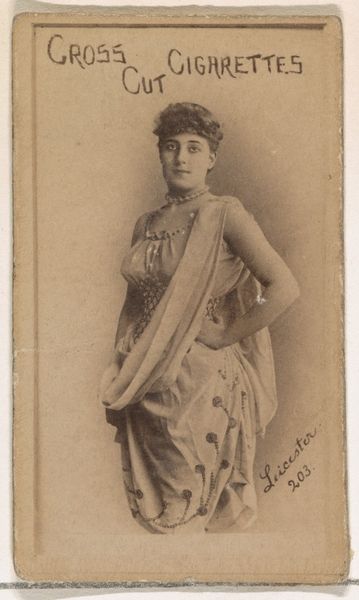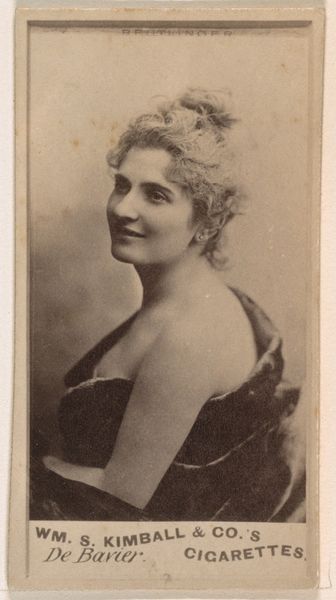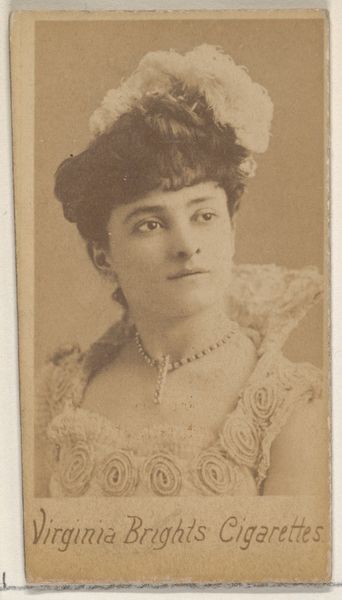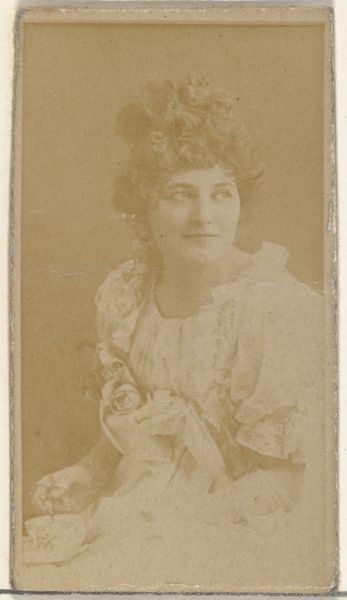
Card Number 313, Maud Hewllen, from the Actors and Actresses series (N145-3) issued by Duke Sons & Co. to promote Cross Cut Cigarettes 1880s
0:00
0:00
drawing, print
#
portrait
#
pencil drawn
#
photo of handprinted image
#
drawing
#
photo restoration
# print
#
charcoal drawing
#
charcoal art
#
portrait reference
#
pencil drawing
#
19th century
#
men
#
watercolour illustration
#
watercolor
Dimensions: Sheet: 2 11/16 × 1 3/8 in. (6.8 × 3.5 cm)
Copyright: Public Domain
Curator: The soft light gives this such an intimate feeling, wouldn't you agree? The way it catches on her pearls...it's quite captivating. Editor: It is striking. Let’s explore “Card Number 313, Maud Hewllen” a print originating from the 1880s. Specifically, it was made by W. Duke, Sons & Co. as a promotional item for their Cross Cut Cigarettes. It now resides in the collection of the Metropolitan Museum of Art. Curator: Fascinating! So, an actress used to sell cigarettes... I wonder what Maud Hewllen thought of all this. It certainly challenges our notions of artistic patronage, doesn’t it? A very different setting than traditional portraiture. Editor: Absolutely. We see this object produced in a very specific historical moment – the rise of mass consumer culture and advertising. The very medium used is fascinating, too: it blurs the lines between drawing and print, mimicking charcoal or pencil to produce images suitable for mass distribution. It uses an appeal to celebrity culture in the context of tobacco consumption and female objectification within the industry. Curator: The semiotics of the presentation is so important—her partially draped body. The pearl necklace also carries a connotation of femininity, gentility. It contrasts so sharply with the context, its placement on a cigarette advertisement. It certainly provides an intersection between display and accessibility. Editor: Agreed. Beyond the purely aesthetic pleasure and surface representation, consider how it was circulated: given away with cigarettes, traded, collected... these cards became part of the fabric of everyday life. It’s a confluence of art, commerce, and societal norms all pressed onto a small piece of cardboard. Curator: The texture also intrigues me. It almost has a painterly feel; look at the background which appears almost hand-painted, despite its function as advertising. There’s real artistry at play. The choice to invoke more 'refined' portraiture via those 'artistic' techniques is certainly deliberate. Editor: This intersection of artistic strategy, consumerism, and representations is still potent. So many messages encapsulated in a piece meant to be discarded—yet it persists. Curator: It gives us much to consider. Thank you.
Comments
No comments
Be the first to comment and join the conversation on the ultimate creative platform.
